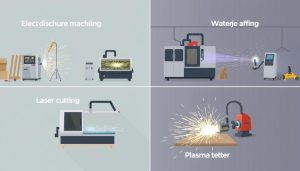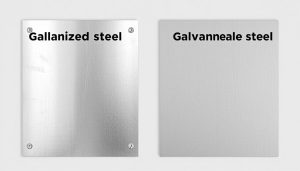Whether you’re working on a construction site, in a manufacturing facility, or simply fixing something around the house, understanding the different types of pins available can make a significant difference in the success and efficiency of your project. In this comprehensive guide, we’ll explore the various pin options, their unique features, and how to choose the right pin for your specific needs.
Pins are small, cylindrical fasteners used to secure, connect, or position different components. They come in a wide range of sizes, materials, and designs, each tailored to specific applications. From the common cotter pin to the specialized lynch pin, this guide will provide you with the knowledge you need to navigate the world of pins and ensure your projects are a success.
Key Takeaways
- Pins are small, cylindrical fasteners used in a variety of applications
- Different pin types have unique features and are designed for specific purposes
- Understanding the different pin options can help you choose the right pin for your needs
- Proper selection of pins can improve efficiency and safety in your projects
- This guide will cover common and specialized pin types, as well as how to choose the right pin for your application
Common Types of Pins
In the world of fasteners and mechanical components, pins serve a crucial role in securing, aligning, and connecting various parts. Among the most common types of pins, cotter pins, dowel pins, clevis pins, and spring pins stand out for their versatility and widespread use across industries.
Cotter Pins
Cotter pins are small, split pins made of metal that are used to secure nuts, bolts, and other components in place. They are often employed in applications where a secure, locking connection is required, such as in automotive, industrial, and machinery settings. Cotter pins come in a range of sizes to accommodate different shaft and hole diameters.
Dowel Pins
Dowel pins are cylindrical fasteners that are primarily used for alignment and positioning purposes. These pins are inserted into matching holes in two or more components, ensuring accurate positioning and preventing relative movement. Dowel pins are commonly found in woodworking, metalworking, and precision machinery applications.
Clevis Pins
Clevis pins are used to create a pivoting connection between two parts, such as in the linkages of heavy equipment or the hinges of various devices. These pins feature a hole at one end, allowing for the attachment of a cotter pin or other locking mechanism to secure the connection.
Spring Pins
Spring pins, also known as roll pins, are hollow cylindrical fasteners that are designed to be inserted into a slightly smaller hole. The springy nature of the pin allows it to compress and expand, creating a tight, secure fit. Spring pins are often used in applications where vibration resistance and easy installation are important, such as in machinery, electronics, and furniture.
Each of these common pin types serves a distinct purpose, catering to the diverse needs of various industries and applications. Understanding their unique characteristics and use cases can help you select the appropriate pin for your specific requirements.
Specialized Pins
In the world of fasteners, specialized pins play a crucial role in various industries. Two such specialized pins that stand out are lynch pins and wire lock pins. These unique fasteners are designed to tackle specific challenges and offer distinct advantages in applications where standard pins may fall short.
Lynch Pins
Lynch pins, also known as hitch pins, are widely used in agricultural and construction equipment. These specialized pins feature a spring-loaded locking mechanism that securely connects components, such as trailer hitches or mower decks, to a vehicle or machinery. The spring-loaded design ensures a tight fit and prevents unintentional disconnection, even in the face of heavy vibrations or impacts. Lynch pins are particularly valued for their ability to withstand the rigors of outdoor use and harsh working environments.
Wire Lock Pins
Wire lock pins, on the other hand, are commonly found in the transportation and aerospace industries. These specialized pins utilize a wire or cotter pin inserted through a hole in the pin to prevent it from working loose. This innovative design makes wire lock pins an excellent choice for applications where components need to be securely locked in place, such as in vehicle suspension systems or aircraft control mechanisms. The wire or cotter pin provides an additional layer of security, ensuring the pin remains firmly in position and protects against potential failures.
Whether you’re working on agricultural machinery, construction equipment, or transportation systems, specialized pins like lynch pins and wire lock pins offer unique solutions to meet the demands of your specific application. Their specialized design and enhanced security features make them indispensable tools in various industries.

Choosing the Right Pin for Your Application
When it comes to machinery and industrial applications, selecting the right pin is crucial for ensuring optimal performance and longevity. Understanding the key factors, such as material properties, strength requirements, and environmental considerations, can help you make an informed decision on the most suitable pin for your specific needs.
Material and Strength Considerations for Pins
The material of a pin plays a significant role in its overall strength and durability. Common pin materials include steel, stainless steel, aluminum, and bronze, each with its own unique characteristics:
- Steel pins offer exceptional strength and resistance to wear and corrosion, making them a popular choice for heavy-duty applications.
- Stainless steel pins provide similar strength to steel, with the added benefit of enhanced corrosion resistance, making them ideal for environments with exposure to moisture or chemicals.
- Aluminum pins are lightweight and corrosion-resistant, suitable for applications where weight is a concern, such as in the aerospace industry.
- Bronze pins exhibit good wear resistance and are often used in applications with rotational or sliding movements.
How to Choose the Correct Pin for Your Machinery
When selecting a pin for your machinery, it’s important to consider the specific requirements of your application. Factors such as the expected load, frequency of use, and environmental conditions should all be taken into account. Consulting with a pin manufacturer or engineering expert can help you determine the optimal pin size, material, and design to ensure the long-term reliability and performance of your equipment.

By carefully considering the material and strength requirements, as well as the specific needs of your machinery, you can ensure that the pins used in your application provide the necessary performance and durability, ultimately enhancing the overall reliability and efficiency of your equipment.
Why Choose Shixinproto for Pin Manufacturing
When it comes to pin manufacturing, Shixinproto stands out as the premier choice for businesses across various industries. With a proven track record of delivering high-quality, custom pin solutions, the company has earned a reputation for excellence in the field of pin production.
At the heart of Shixinproto’s success is its commitment to manufacturing capabilities that are unparalleled in the industry. The company’s state-of-the-art facilities and advanced equipment enable them to produce a wide range of pin manufacturing products, from standard to specialized designs, with exceptional precision and durability. Whether you require custom pins or off-the-shelf solutions, Shixinproto has the expertise to meet your needs.
Quality is the cornerstone of Shixinproto’s operations, and the company’s rigorous quality control measures ensure that every quality pin that leaves their facilities meets the highest standards. From material selection to final inspection, the team at Shixinproto takes great pride in delivering pin solutions that exceed customer expectations, making them the go-to choice for businesses seeking reliable and long-lasting pin products.





